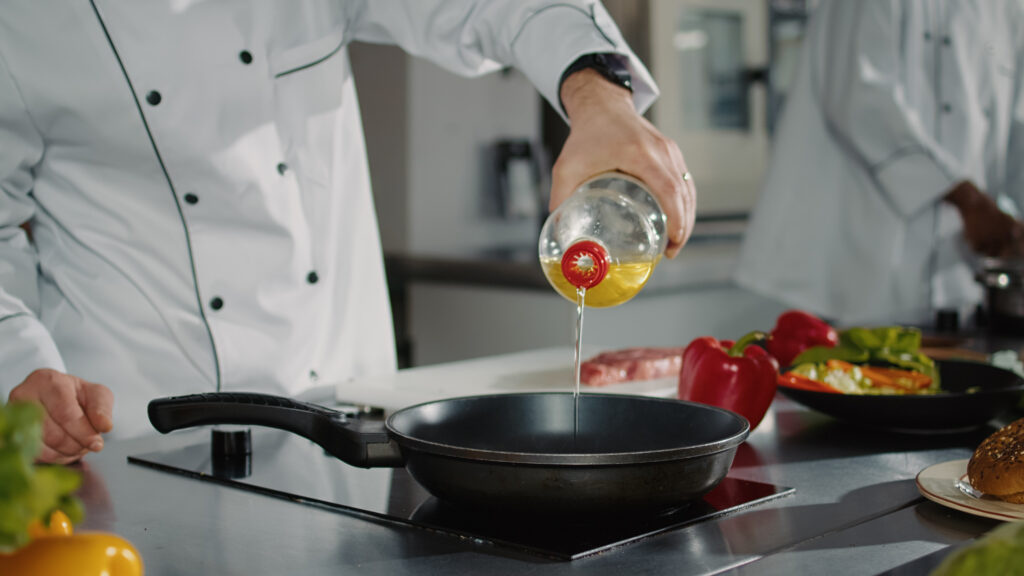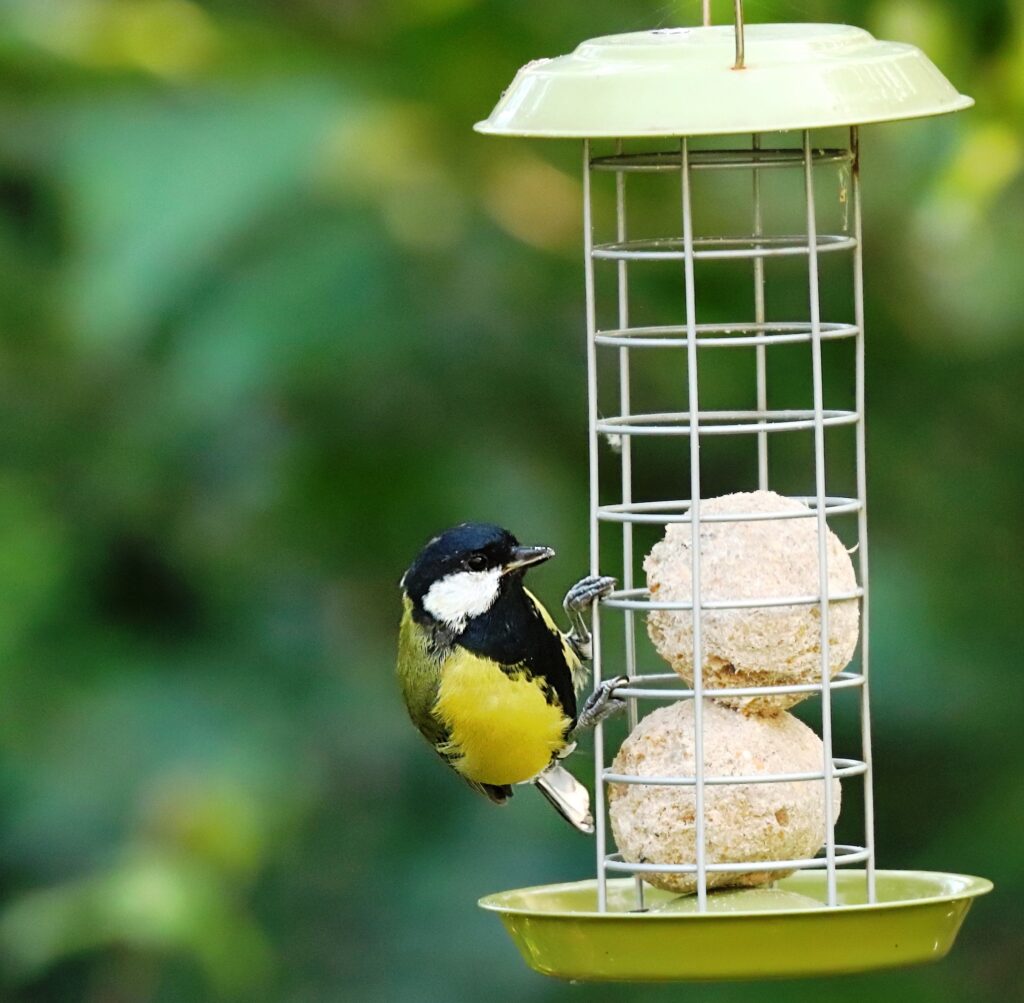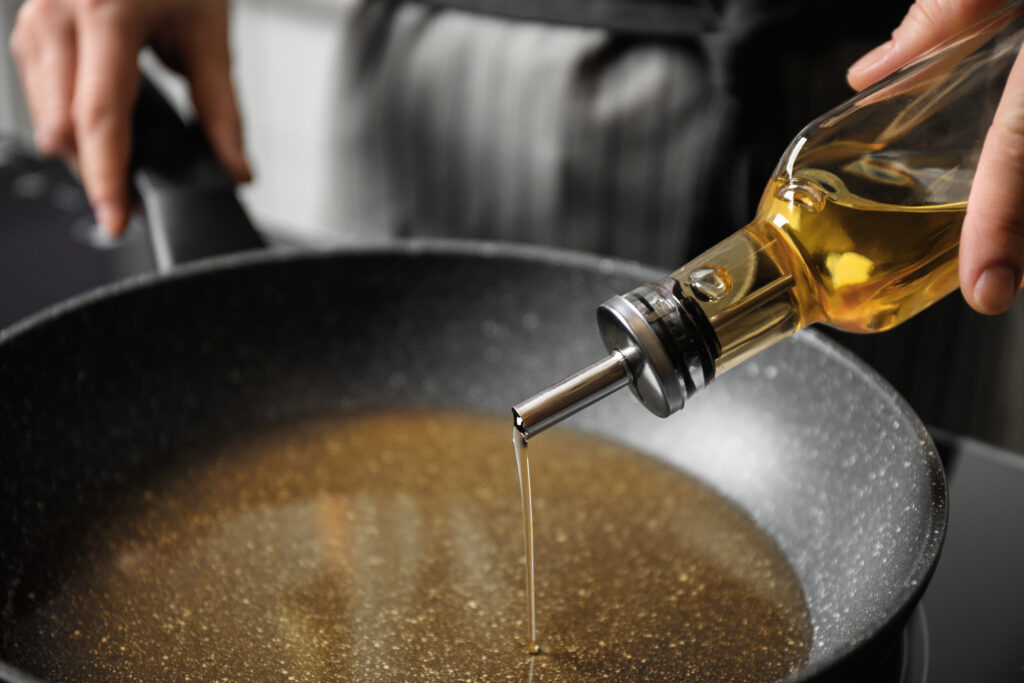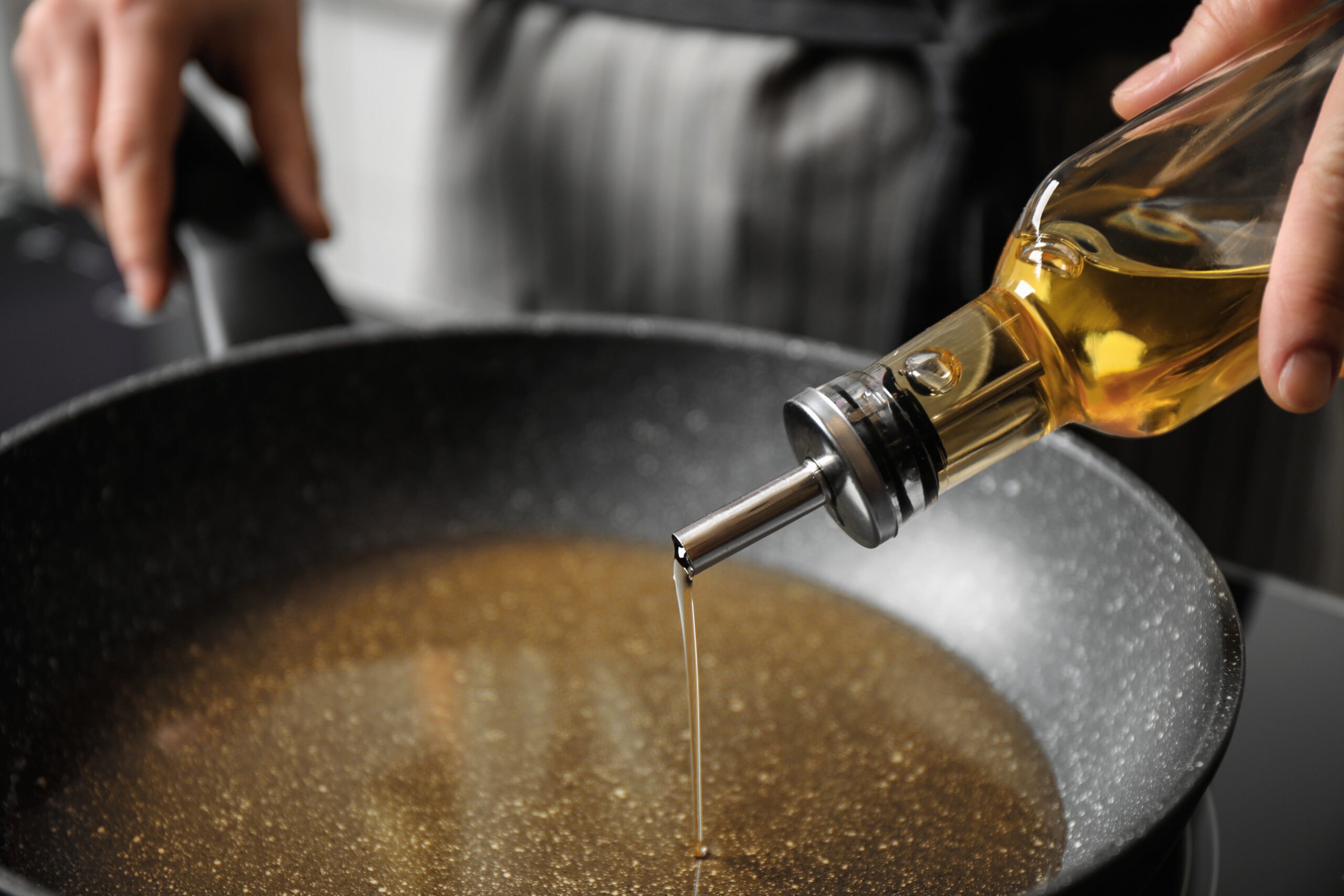Some of the links on this page are affiliate links, which means that Buzzy Kitchen earns commission from purchases made – at absolutely no extra cost to you. Thank you so much for supporting Buzzy Kitchen!
In case you weren’t already aware, you should never throw used oil or fat down the drain. There are plenty of ways to properly dispose of cooking oil UK, all of which are more eco-friendly than pouring it down the drain and less potentially draining on your bank balance!
Don’t believe me?
Why don’t we take a closer look?
How to Properly Dispose of Cooking Oil UK
You can properly dispose of cooking oil UK in a number of ways, which means there is no excuse for getting rid of it in the wrong ways!
1: Check Your Council Website
My local council website has guidelines and local information on how to get rid of cooking oil, and also how not to get rid of it.
The site offers three or four different methods of safe and appropriate disposal of cooking oil, and it also makes clear that oil or fat should not be poured down the drain.
You will likely find that your local council or county government website will also have a similar section, with similar advice. I recommend doing a Google search for “cooking oil [town/city] council” or similar.

Image by DCStudio on Freepik
2: Recycle It
In some places around the UK, you’ll find food waste recycling centres. This is the perfect place to take cooking oil and similar food waste items.
Find a suitable and large enough storage container with a lid, and pour all of your used cooking oil into it while it is still liquid, but not hot.
When you have a large enough amount, take it to a local food waste recycling centre for them to recycle it and/or dispose of it appropriately.
3: Make a Bird Feeder
You can create homemade bird feeders with used cooking fat. The process is simple, can be done as a weekend activity to get the kids interested in wildlife, will save you money in actual bird feeds, and will encourage more wildlife to your back garden.
You will need a container, your used cooking oil (in liquid form), and some bird seed or bird-appropriate food.
Pour the seed into the container, then add the oil. Make sure that it’s pretty packed with bird seed. The more compact, the better.

Photo by John Thorne | Pexels
Put the mixture to one side until it has cooled and solidified. At this point, it is ready to give to the birds. You could place it on a bird feeding table, tie it with rope and hang it from a tree branch, or throw it up on top of the garage roof.
(Just be mindful of the mix ending up in your guttering!)
4: Bin It
Small amounts of cooking oil can be thrown in the bin along with your other household waste.
You will need a container with a lid, in which you pour the still-liquid cooking oil, before letting it to cool down. When it has cooled and/or when the container is full, throw it out with the rest of your rubbish.
You can also use a sealable bag, such as a freezer bag, or a ball-type creation made with aluminium foil. It just needs to be stable and upright for the cooling and solidifying process.
5: Reuse It
Cooking oil can actually be used more than once, but only if you haven’t heated it up so much that it starts to smoke. If you have done that, you have gone past what is known as the smoking point, and you will likely need to dispose of it.
In order to reuse cooking oil, you’ll want to first get rid of all the bits from your last cooking session. You can do this by straining oil, which will remove the lumps and bits. To do this, use a sieve or some cheesecloth. I personally prefer a sieve. You can also buy oil containers with filters built into them, designed to get rid of the lumps and bits.
A colander is not suitable for removing the lumps from used cooking oil. The holes are too big and some of the floating bits and lumps can still slide through.
6: Use a Cooking Oil Collection & Disposal Company
This option is better for those with large amounts of used cooking oil to dispose of, such as restaurants and takeaways, but there are companies that will collect your used cooking oil and then turn it into something brand new.
Once the company collects your cooking oil, they refine it, using a process called transesterification.
They then recycle it, turning it into eco-friendly biofuel, such as biodiesel.
T Quality is just one company that offers this service in the UK, and the website guides you through the entire cooking oil-to-biofuel process.

How NOT to Dispose of Cooking Oil UK
Never pour any kind of cooking oil down the drain.
This includes not only hot and used oil, but also cold and solid oil, and unused oil.
What Happens When You Pour Cooking Oil Down the Drain?
Oil that has been poured down the drain – in any form – will lead to clogs, blockages, and costly plumbing bills. It can and will solidify, blocking the pipes. This can lead to back-ups into the house or property, as well as the main sewerage system, which could then cause floods and water damage.
That’s not all: scavengers and pests will be attracted by the backed-up sewage. This will include mice and rats. Flies will also join the party. The backed-up sewage alone will be enough to cause an increased risk of disease, but when rodents and insects join in, the risk of spreadable disease increases considerably.
There will also be a terrible smell. It’s the kind of smell that lingers. Cleaning it over and over and over again is the only way to get rid of it, and that takes time, energy, effort, a lot of cleaning equipment, etc.
You may also find yourself needing to deal with insurance companies, if the damage and destruction is extensive enough. The damage caused might be extensive enough to require repairs and renovations, and perhaps even redecorating. If you’re not covered by your insurance policy, this will end up coming out of your pocket — and it might be rather costly!
And, technically, if you’ve poured cooking oil down the drain, you’ve caused the damage. If your actions can be proven, the insurance company will not cover the costs.
So, in short, do not pour cooking oil down the drain.
It is a terrible, costly, damaging, environmentally un-friendly idea.
Can You Add Used Cooking Oil to a Compost Heap or Bin?
No, it is not recommended to add cooking oil to a compost heap or bin.
Although cooking oil does decompose and compost, the process takes a lot longer. It also causes a range of other side effects, including a bad smell, an increased chance of attracting rodents and other pests, and a complete standstill of the composting process, especially if you add too much oil.
Certain types of cooking oil can be composted, but the amounts you can easily compost are so small, it is hardly worth it.
